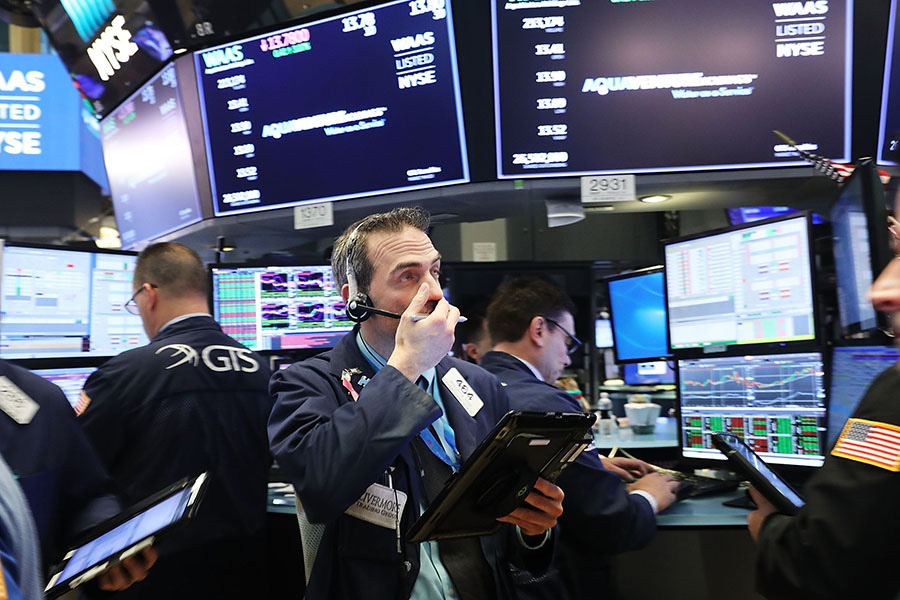Market's moves seem to be ignoring the healthy economy and good earnings.
Wall Street veterans are used to waiting out turbulence, but the frenzy engulfing equities this week is starting to strain their patience.
Bad days are coming in waves. Of the five worst sessions since 2015, two have come in the last two weeks, and as of Wednesday, the S&P 500 and Dow Jones Industrial Average had erased their gains for the year.
The pros are perplexed — why now? Everyone knows stocks can go into free fall over nothing, but conditions in the economy and Corporate America seem so good. Talk in the securities industry came with a tinge of disbelief. Hasn't the downdraft gone too far?
"I'll be honest, I have a hard time explaining this," said Patrick Palfrey, equity strategist at Credit Suisse. "There isn't a single item that is the smoking gun behind the sell-off. Concerns around trade or tariffs, concerns around valuations, concerns around peak earnings — you name it, and I promise you I've heard a client trying to attribute it to that. I don't think any of them fit."
Things that never used to bug investors are being trotted out as mortal threats. People who spent years praying for inflation are now convinced it will kill the economy. The Federal Reserve has raised rates eight times, taking them to barely 2%, and suddenly that's way too much. Eleven percent earnings growth? No longer enough.
"People have been tiptoeing to 2018 largely with their eyes wide open, but the markets are clearly overreacting," said Jack Ablin, chief investment officer at Cresset Asset Management. "The selling activity is heavily influenced by emotion. I'm not really seeing other factors confirming the markets rout, and I've been trying really hard."
However serious the looming dangers, the price action in the most beaten-down corners looks extreme. Industrial stocks slumped 3.4% Wednesday while utilities rose 2.3%, the widest gap since 2008. Consumer discretionary companies trailed consumer staples makers by the most since 2009.
Then there's the homebuilders. The battered sector has plunged in 16 of the past 20 sessions, widening its loss this year to 36%, more than any other group in the S&P. Building stocks have fallen to near-recession levels amid anxiety about rising interest rates, higher construction costs and data showing a cooling housing market.https://cdn-res.keymedia.com/investmentnews/uploads/assets/graphics src="/wp-content/uploads2018/10/CI1176471026.PNG"
"The market is starting to believe that we won't have any growth at all next year and that's just wrong," said Paul Zemsky, chief investment officer of multi-asset strategies at Voya Investment Management. "It's starting to price in significant interest rate increases and a significant slowdown in earnings growth. It's getting to a point where it's overdone."
Not that everyone professes bewilderment. Volatility may feel out of control, but it's a result of real problems in the economy: rising financing rates and evidence that companies can't pass costs along. Interest rates may be depressed by historical standards but they're not low compared with where they've been through most of the bull market.
"Why shouldn't stocks fall nearly 10%? New home sales tumble on the Fed's rate hikes and promises of higher rates to come. Trump calls monetary policy loco, and the stock market is saying maybe the president is right," said Chris Rupkey, chief financial economist at MUFG Union Bank. "It looks like we are doomed."
"This feels sharp. And it feels uncomfortable, but most corrections do," Ann Miletti, senior portfolio manager at Wells Fargo Asset Management.
"Panic is the worst thing an investor can do," Ms. Miletti said. "What you want to do is focus on the long term and actually take advantage of market emotion."







